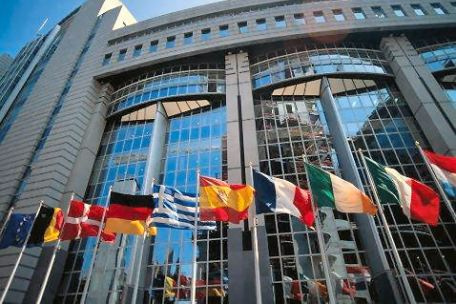The Economic Crisis: A Test of the EU Integration Process

The economic crisis in Europe has forced the European Central Bank, ECB, to purchase 22 billion Euros of Spanish and Italian bonds in order to help out the economy of these countries. This is while the economic crisis in Europe is turning into a social one in the form of popular protests. Davoud Salehi analyzes the issue for Iranian Diplomacy.
The ECB has recently purchased 22 billion Euros of Spanish and Italian bonds. However, some activists in the financial market have said that this bank has also bought Portuguese and Greek bonds during August 4-5 of this year. In other words, the ECB has bought some 96 billion Euros of European bonds up until now. This issue has been criticized in some political and economic circles in Europe, since it has reduced the deposits of ten-year bonds.
In regards to the liquidity this bank provides for countries in poor economic shape, there are some points worth of mentioning. This decision was a landmark one in the finance ministers’ meeting of the G7 consisting of the US, Britain, Germany, France, Japan, and China. These countries announced that in addition to this act they will also control irregular currency movements.
Spain’s economic growth had reached about 4% during Mr. Zapata’s administration, but since the economic crisis in US left its traces in Europe Spain has faced housing, stocks and economic crises. After 2008 the economic crisis contaminated Europe, created problems for this European country, and led to protests by the youth against their government and more generally against financial international circles.
Last week official US sources announced that Barak Obama and the Spanish President had reached agreements on stabilizing and preventing a slow economy, and further cooperation between the two countries. The meeting of these two officials has a new meaning and that is that they mutually believe that they should follow the points they agreed upon on July 21st of last year more seriously while emphasizing on Euro project.
Both Obama and Zapata believe that since the economic crisis has influenced the Eurozone and the US, countries have to cooperate in order to achieve a stable economy. This shows that this problem is really being pursued.
The Prospects of the Crisis
The results of these actions are different in different countries. Therefore, despite the demand of the EU of its members to join the financial aid plans based on their national regulations, member states have tried to reduce the influence of the economic crisis through national domestic policies. These actions show that the fragile condition existing within the EU undermines its existence. One of the concerns of developed European countries is that if the economic crisis only inflicted countries like Greece or Portugal previously, now it has become an issue for these countries as well.
This lack of success can be seen in Ireland’s unwillingness to join the Lisbon convention; this was observable in cases like the US invasion of Iraq, the independence of Kosovo and the crisis in Russia and Georgia. Therefore, the EU has not been able to create an acceptable integrity within it. Countries like the US, Russia and China were also competing with this union and therefore creating challenges for it.
The heavy reliance of financial systems of the US and Europe was the main reason behind the spread of the crisis from the US to Europe, and despite Europe’s attempts to prevent the collapse of financial systems, it achieved no success. Therefore, this showed that Europe lost its strategic decision-making power in the long run in regards to the US. This crisis showed that globalization is not successful-- at least in the case of economics-- and has resulted in damages to the global economy. This crisis has revealed the limitation of the EU in integration and creating close cooperation during a huge crisis, and was a lesson learnt from the economic situation in the US.
The Influence of the Crisis on Spain
Since the beginning of the economic crisis in the US, one of the tricks played was to announce that the crisis was global and its costs were spread to all countries, and newly formed economies. Like other European countries, Spain was not immune from the crisis and witnessed its damaging results in different financial and social sectors. The decline of economic growth, increase in budget deficit, rising trade deficit, housing recession, unemployment, recession in the tourism industry, and reduction of the value of the stock exchanges were among the impacts of the crisis on the Spanish economy.

